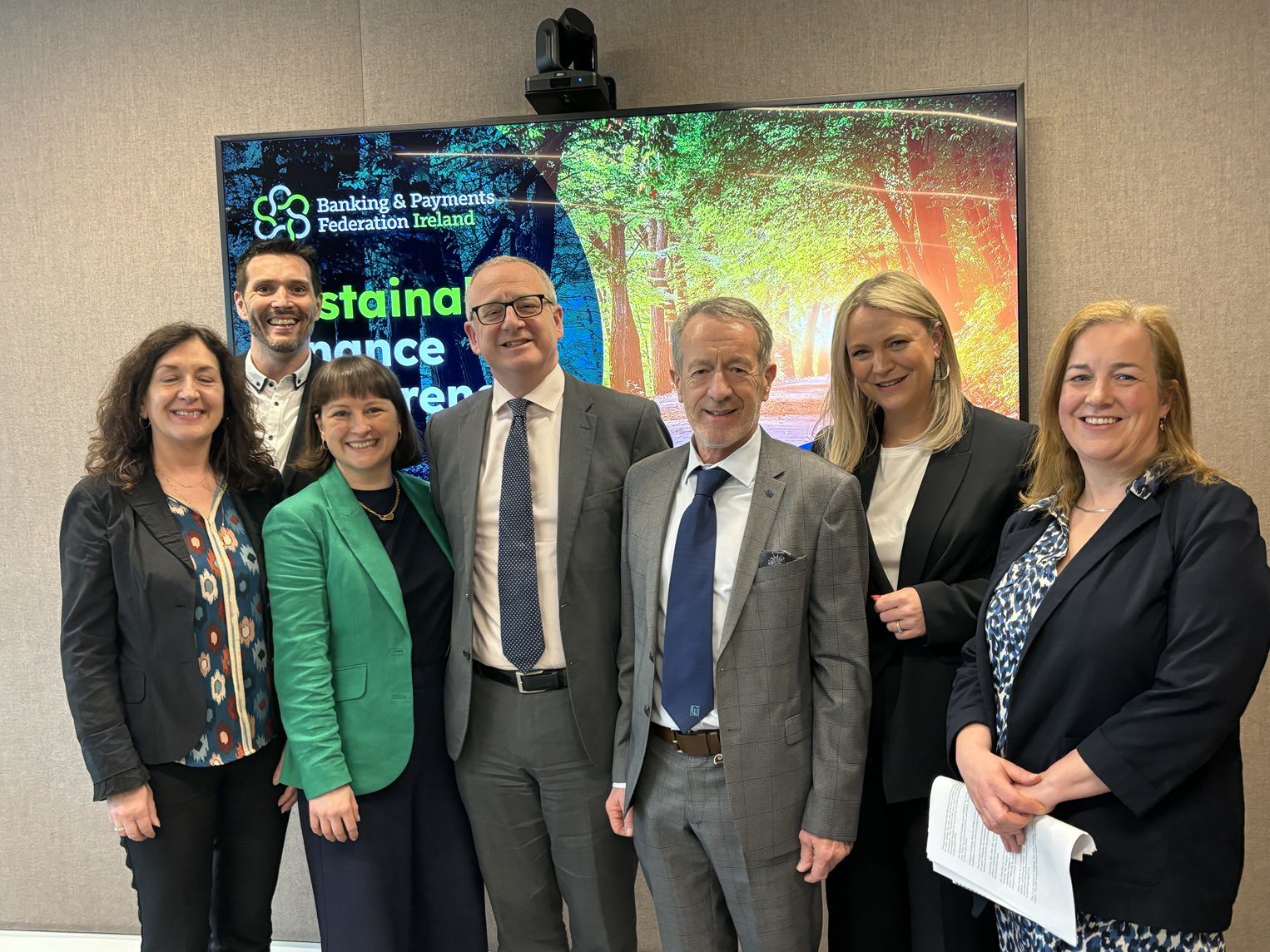Thank you Vincent; and good morning Ladies and Gentlemen
As President of Banking & Payments Federation Ireland it is my pleasure to welcome you all to this morning’s conference.
This year’s theme of ‘Delivering for the Customer’ affords us the opportunity to consider how we can best meet the needs of the customer in an ever-changing marketplace.
In reality, no one financial services firm can claim to have the complete or perfect answer to this. The manner in which banks and other providers differ in their approach is confirmation that it’s certainly not a case of ‘one size fits all’.
It’s all of 25 years since Bill Gates famously stated “Banking is necessary, banks are not”. It’s no surprise to hear that I disagree with the latter part of his sentiment; and developments since then have proven him wrong. Perhaps what he really meant was ‘banks in their then current form’, in which case there is some substance to his assertion.
We have witnessed huge transformation over the last 25 years in how retail banking services are delivered to customers.
Crucially, this transformation has been driven by customer preferences and demand. That’s set to continue. Let’s look briefly at some trends which illustrate this.
- The number of licensed credit institutions in the EU-28 member states fell by some 29% between 2008 and 2018. Germany and Italy experienced the largest contractions in absolute terms, but we’ve also seen our fair share of contraction here.
- The number of branches across the EU 28 has fallen by 27% over the same period – and again we have not been immune to this trend.
- At the same time there’s been huge growth in digital banking and contactless payments. For example:
- Irish consumers made over 48 million credit transfer transactions through their online banking services during the second half of 2018, an increase of almost 50% since the second half of 2014. Taking a wider view, over broadly the same period the number of digital interactions, including customers checking their online account balance, has seen a four-fold increase.
- Some 364 million contactless payments were made here during 2018 – that’s almost one million per day and represents growth of 63% in one year alone.
It’s clear from these trends that any bank or financial service provider which does not embrace technology to meet customer expectations will struggle to remain relevant.
All providers – from traditional banks to digital banks, fintechs to big techs and other non-financial platform companies – are each developing their own strategy and approach to market.
For more traditional banks like my own, and indeed banks generally in Ireland, this has not led to our abandoning the branch as part of the delivery infrastructure.
Rather, it has meant consolidation in branch numbers and reconfiguration of the role of the branch as an important element in our range of service delivery channels.
The branch also provides a presence in communities and is a way of reinforcing trust.
This could well explain why, while primarily focusing on digital platforms, a number of challenger banks have also embarked on opening branches.
And who knows what other new trends are to come… I note that Clydesdale and Yorkshire Bank has decided to deploy bankers as trained baristas in their B digital brand.
Mention of trust brings me finally to the issue of culture in banking.
We know full well that we have a great deal of work to do to rebuild the trust of our customers and other stakeholders; and to do that we need to build a culture which delivers fair outcomes for those customers and stakeholders.
Speaking for my own bank I can say that we have embarked on an extensive programme of work in that area; and I believe that other banks are committed to doing something similar.
At industry-level we fully support the work of the independent Irish Banking Culture Board, as we do the work of the Central Bank in developing a more robust corporate governance framework – including a Senior Executive Accountability Regime.
In working with these key stakeholders, we will at the same time be keen to ensure that, in the words of our Chief Executive, Brian Hayes, “we will be careful not to instil a culture of blame”.
I’m sure that the issues that I have briefly touched upon will come up in the various discussions this morning.
Indeed, we’re very fortunate to have with us an array of leading speakers and panellists from home and abroad to give their perspective on our conference themes.
The room is looking forward to hearing them and I want to strongly encourage you to engage with the discussion and ask questions.
In conclusion, I would like to thank our sponsors – Accenture – whose valuable support yet again makes this event possible.
Thank you for your attention and I now hand you back to Vincent.







